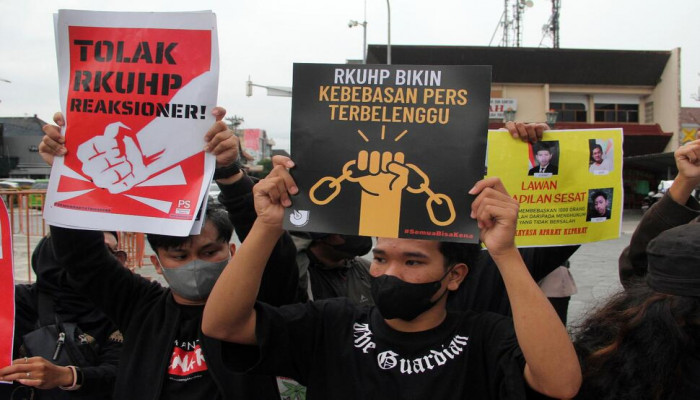Indonesia bans adultery, sex outside marriage; joins other Islamic nations that sanction punishment for such ‘crimes’
- In Reports
- 06:13 PM, Dec 06, 2022
- Myind Staff
Indonesia today passed a new criminal code that banned sex outside marriage, making it punishable by up to a year in prison. The new code also makes adultery illegal and it is now a punishable offence to speak against the president or the state.
The new code, which will apply to Indonesians and foreigners alike, also prohibits cohabitation between unmarried couples. The legislative overhaul will also ban insulting the president or state institutions and expressing any views counter to Indonesia's state ideology.
The criminal code makes the promotion of contraception and religious blasphemy illegal.
And the new code maintains abortion as a criminal offence with an exception for rape survivors and for women with life-threatening medical conditions, provided that the foetus is less than 12 weeks old. This is in with a separate law on medical practice passed in 2004.
The new criminal code, which was approved unanimously by parliament on Tuesday, replaces a framework that had been in use since independence in 1946 and was a mix of Dutch law, customary law known as hukum adat, and modern Indonesian law.
“We have tried our best to accommodate the important issues and different opinions which were debated. However, it is time for us to make a historical decision on the penal code amendment and to leave the colonial criminal code we inherited behind,” Yasonna Laoly, minister of law and human rights, told parliament ahead of the vote.
The new code will now be signed into law by the president, but will not be implemented immediately as it will take a maximum of three years to transition from the old to the new code.
"That (the new Criminal Code) has a lot of implementing regulations that must be worked out, so it's impossible in one year, but remember the maximum (transition period) is three years," deputy minister of law and human rights Edward Hiraei said.
Albert Aries, a spokesperson for Indonesia’s justice ministry, said the new laws regulating morality were limited by who could report them, such as a parent, spouse or child of suspected offenders.
“The aim is to protect the institution of marriage and Indonesian values, while at the same time being able to protect the privacy of the community and also negate the rights of the public or other third parties to report this matter or ‘playing judge’ on behalf of morality,” he said.
The planned code sparked nationwide student-led protests when a full draft was released in September 2019, amid fears it would curtail personal freedoms. Human rights groups have said that the codes curtail freedom of speech but its defenders say that the law permits protests “made in public interest”.
Islamic countries like Iran, Saudi Arabia, Afghanistan, Pakistan, Bangladesh and Somalia also impose Sharia law that makes adultery, homosexuality, sex outside marriage a punishable offence.
Image source: AP







Comments